7 Pesky Critters That Hate the Smell of Orange Peels
Often discarded as kitchen waste, orange peels hold a remarkable secret: they can be used to repel a wide array of pests that commonly infiltrate our homes and gardens. From rodents to insects and even some plant-damaging critters, orange peels offer a natural, eco-friendly, and cost-effective solution to keep your living spaces free from unwanted invaders. Let’s delve into the world of pests that detest the scent of orange peels and how to use this fragrant remedy to safeguard your surroundings.
1. Mice and Rats
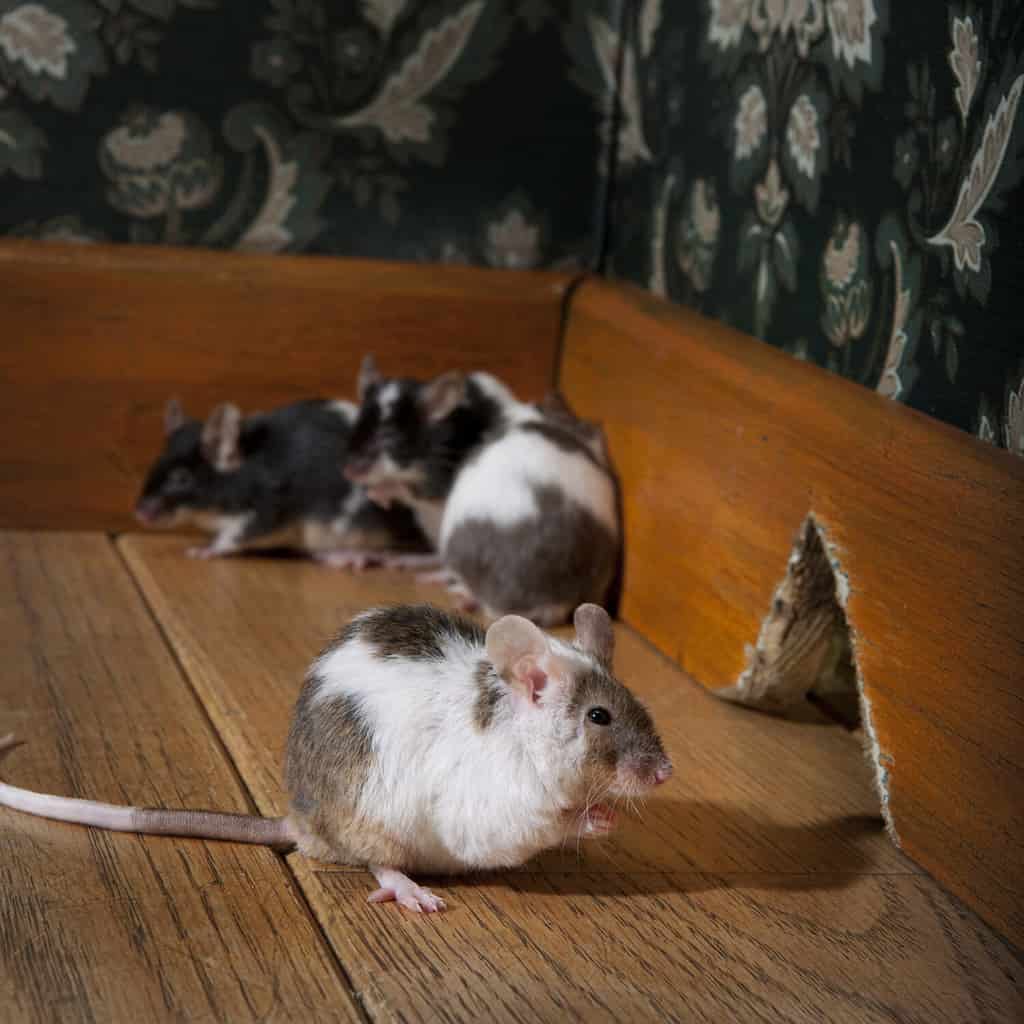
©Eric Isselee/Shutterstock.com
Mice and rats, beyond being a nuisance, can carry diseases and wreak havoc on your home, gnawing through everything in their path.
Why They Hate Orange Peels:
The overpowering citrus aroma of orange peels baffles their keen sense of smell, leaving them disoriented and seeking more welcoming accommodations.
How to Use Orange Peels:
To harness the pest-repelling power of orange peels, simply dry them out and place the dried peels near entry points or infested areas. Remember to replace them every few weeks to ensure the scent remains potent.
2. Ants
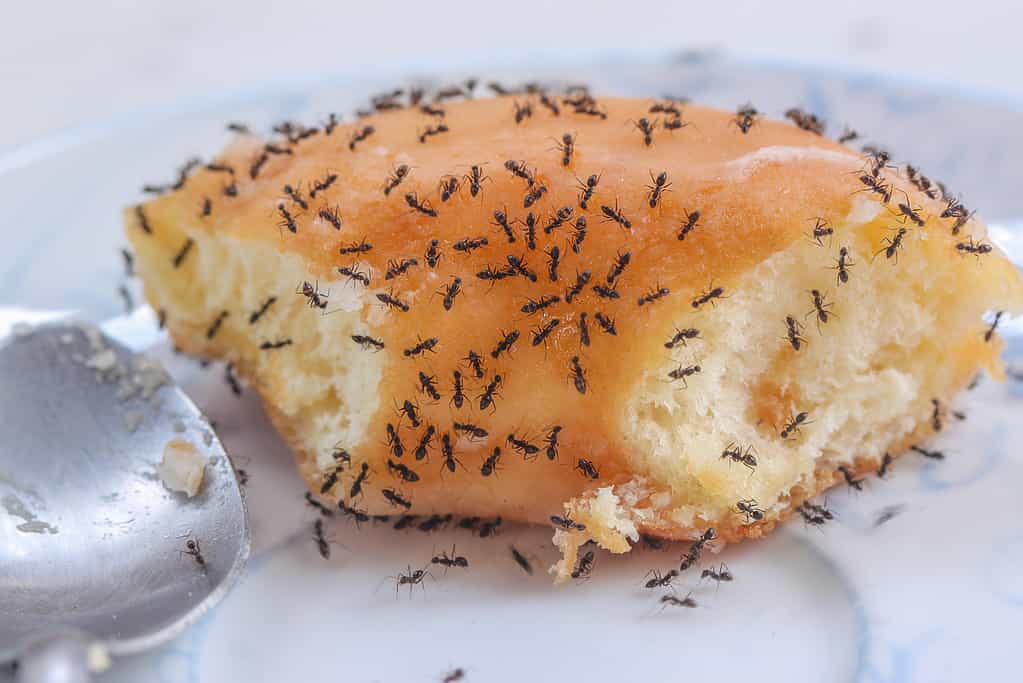
©DARUNEE SAKULSRI/Shutterstock.com
Ants, the tireless scavengers, can quickly overrun your kitchen, turning your food into a smorgasbord for their colony.
Why They Hate Orange Peels:
Ants rely on scent trails and pheromones for communication and foraging. Fortunately, the robust citrus scent of orange peels disrupts their navigation ability, making your home less appealing.
How to Use Orange Peels:
Scatter small pieces of fresh orange peels along ant trails and near entry points to thwart their advances.
3. Cockroaches
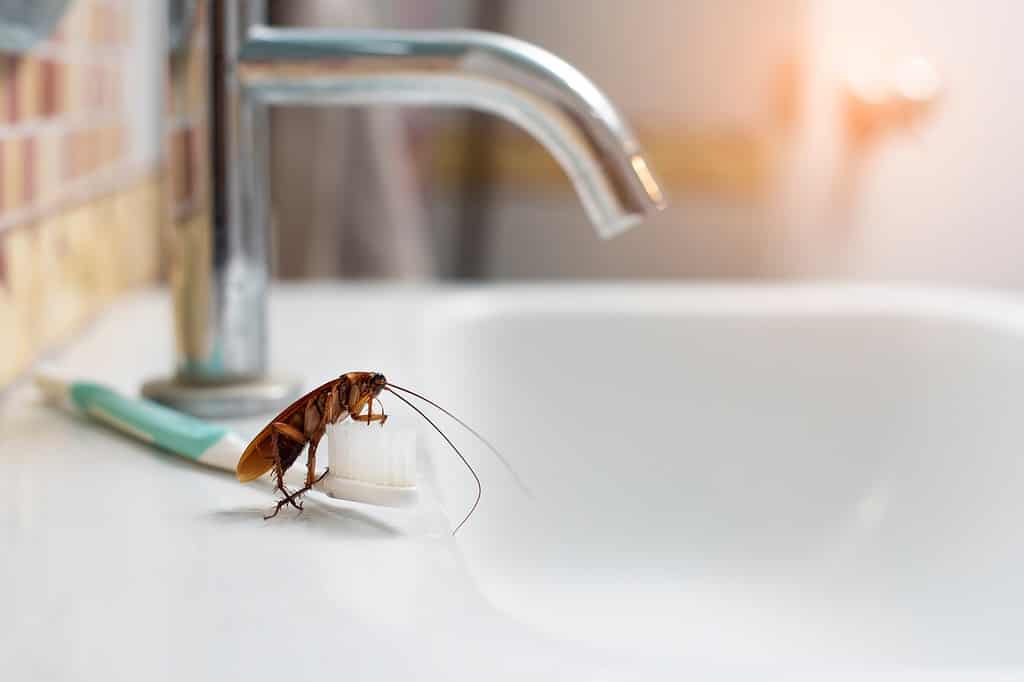
©Pasonglit Junuan/Shutterstock.com
Cockroaches, known disease carriers and allergen spreaders, can invade your home through the tiniest openings. Clearly, these are pests you want out of your home.
Why They Hate Orange Peels:
With their pungent citrus scent, orange peels interfere with the cockroaches’ pheromone signals. This confusion discourages them from setting up camp in your home.
How to Use Orange Peels:
To keep these unwelcome guests at bay, blend fresh orange peels into a paste and apply it along cracks, crevices, and areas where roaches are typically found. Fortunately, this tactic can keep these pests at bay.
4. Mosquitoes
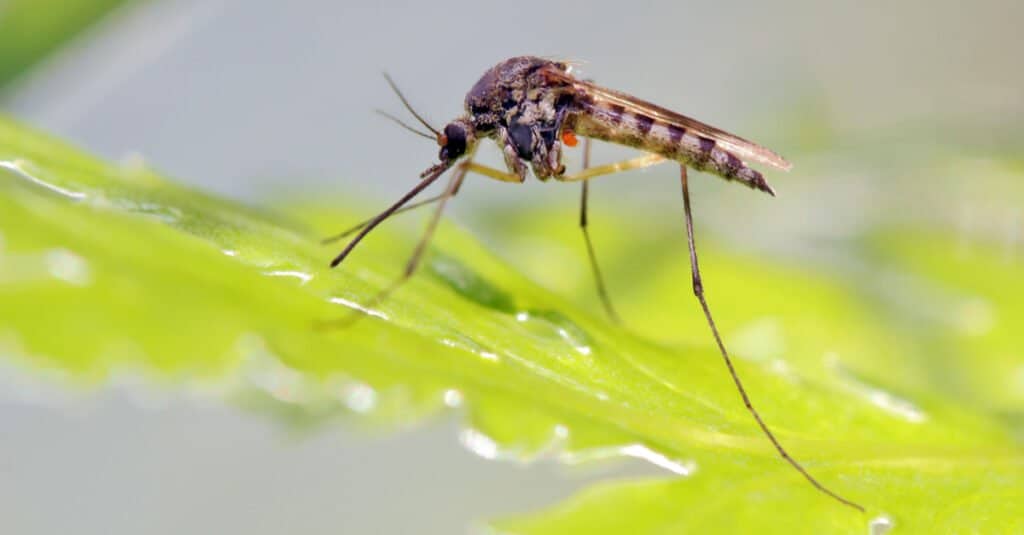
©Achkin/Shutterstock.com
Mosquitoes are more than just a summertime annoyance; they’re known disease vectors, transmitting serious illnesses like Zika and West Nile Virus.
Why They Hate Orange Peels:
The citrusy aroma of orange peels conceals human scents, making it harder for mosquitoes to track their prey. This is clearly a benefit for humans looking to avoid those pesky bites.
How to Use Orange Peels:
Rub fresh orange peels on your skin or place them in outdoor areas to create a mosquito-free oasis.
5. Flies
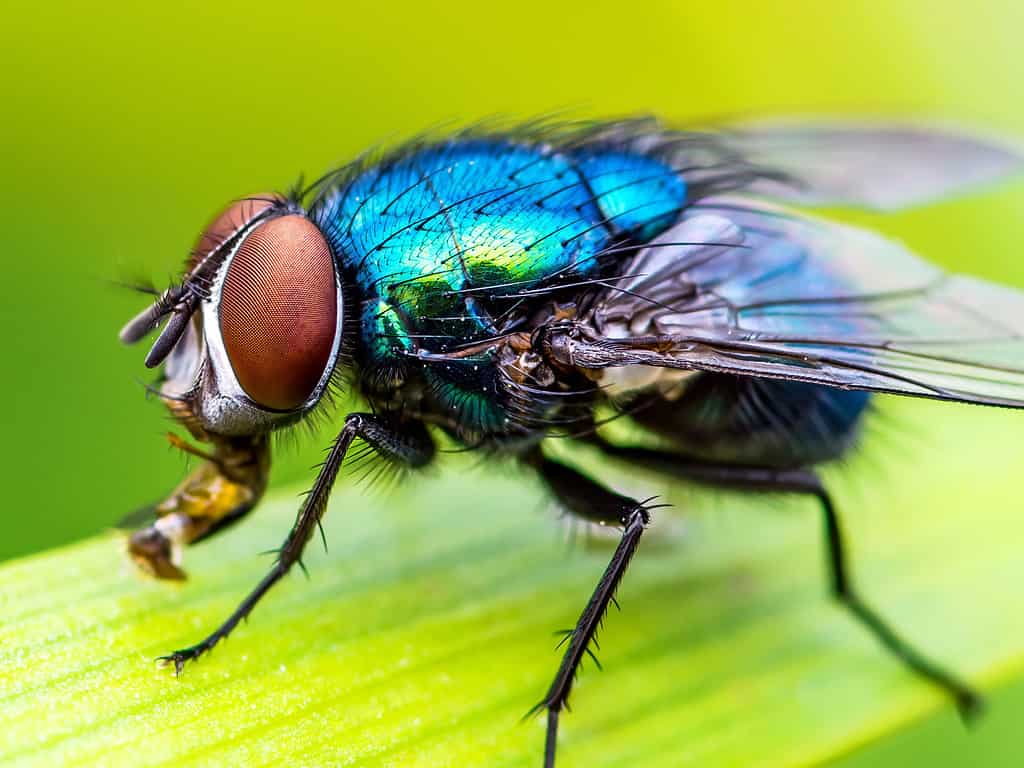
©nechaevkon/Shutterstock.com
Flies are unsightly and can carry harmful bacteria, contaminating your food and living spaces.
Why They Hate Orange Peels:
The strong citrus scent of orange peels is an effective fly repellent, making your surroundings less appealing to these pests.
How to Use Orange Peels:
Hang dried orange peels in a sachet or near windows to keep flies at bay and maintain a fly-free environment. Furthermore, you can spread as many of these as needed to improve fly control.
6. Spiders
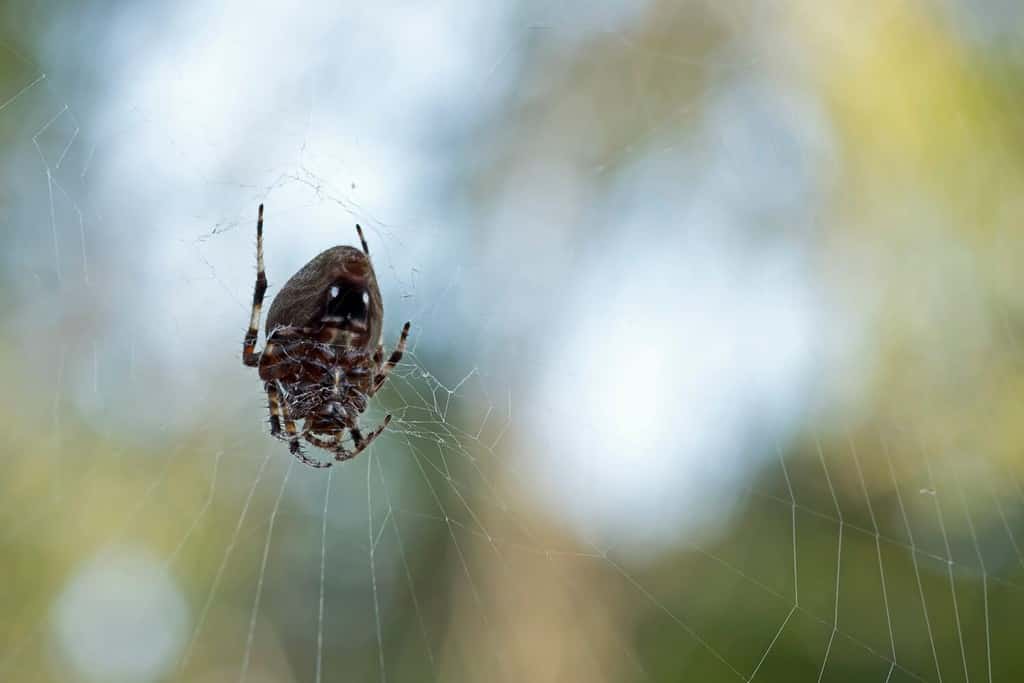
©Katie Flenker/Shutterstock.com
While most spiders are harmless, their cobwebs can be unsettling. Some species can be a genuine nuisance, leading many to seek ways to deter them. While you may want to keep harmless arachnids around, oranges can deter large infestations.
Why They Hate Orange Peels:
The scent of oranges is a natural deterrent to spiders, discouraging them from spinning webs in your home.
How to Use Orange Peels:
Place fresh orange peels where you’ve noticed spider activity, such as corners, window sills, or any place where webs typically appear.
7. Aphids
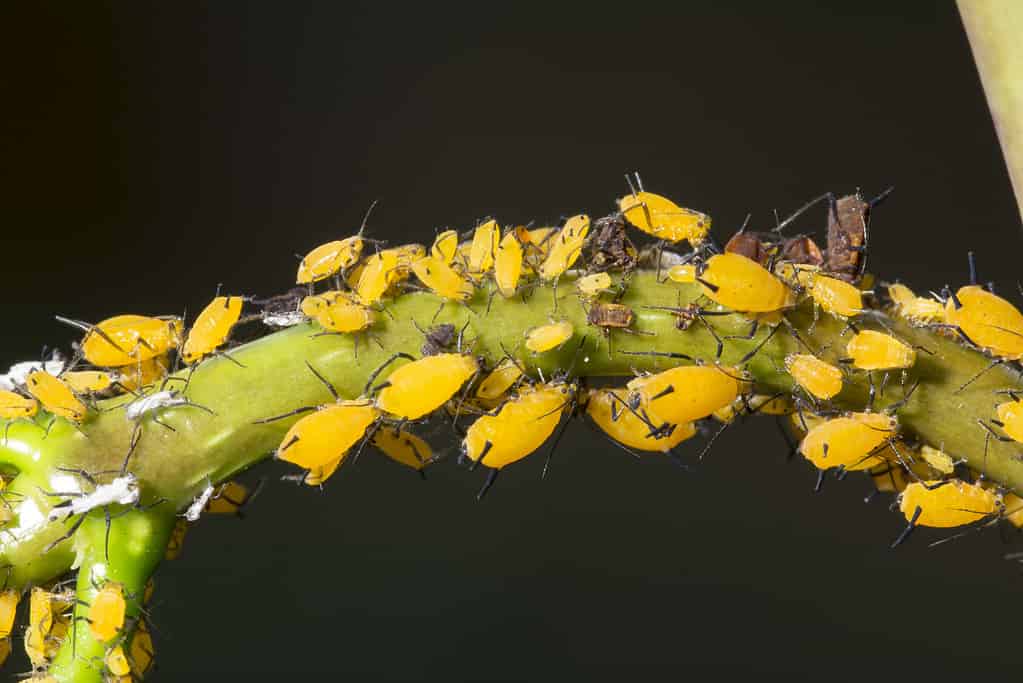
©iStock.com/Wirestock
Aphids feed on plant sap, causing wilting and transmitting diseases to your precious plants, potentially devastating your garden.
Why They Hate Orange Peels:
The citrus scent of oranges is a natural pesticide for plants, discouraging aphids from infesting them and preserving your garden’s health.
How to Use Orange Peels:
To protect vulnerable plants, position orange peel slices near their base or blend orange peels into a natural insecticidal spray to keep aphids at bay. Your garden will thank you for it!
Grow Your Own Pest Control Peels:

©lucas nightingale/Shutterstock.com
Owning your own orange trees is a gratifying endeavor that rewards you with the sweet, succulent fruit in your backyard or garden. Choosing the suitable variety for your climate is the first step, ensuring that your chosen spot gets a healthy dose of sunlight, at least 6-8 hours each day.
Plant your orange tree in well-draining soil, with proper spacing of 10-15 feet between multiple trees. The planting process typically occurs in the spring, post the last frost, requiring a hole twice as wide as the root ball. Watering is crucial but should be approached with moderation to prevent root rot. Adequate feeding through balanced, slow-release, or citrus-specific fertilizers, coupled with pruning to maintain the tree’s shape and improve air circulation, ensures healthy growth.
Protecting your orange tree from pests and diseases, such as aphids, scale, citrus leafminer, and citrus canker, is essential. In areas prone to frost, safeguard your tree during cold spells. As the fruit ripens in late fall or winter, you’ll be rewarded with a homegrown harvest of delectable oranges. Enjoy fresh oranges as snacks, or incorporate them into your culinary creations. The satisfaction of nurturing your orange tree from planting to harvest is well worth the effort, promising a bountiful supply of juicy, sun-ripened oranges for years to come.
This Citrus Hero
Orange peels are not just remnants from your morning orange juice; they hold the power to repel a wide array of pests, making your living spaces safer and more pleasant. This natural and eco-friendly alternative to chemical repellents has the bonus of leaving your home with a refreshing citrus scent. With strategic use, you can bid farewell to unwanted pests and say hello to a fragrant, pest-free environment. Harness the scent-national potential of orange peels to make your home and garden pest-proof.









